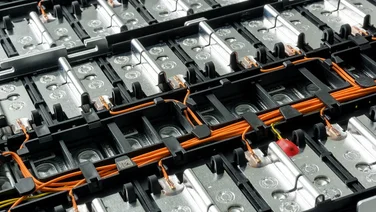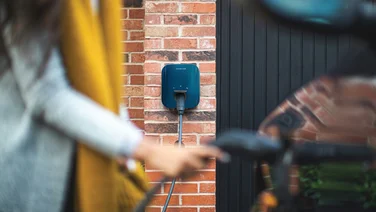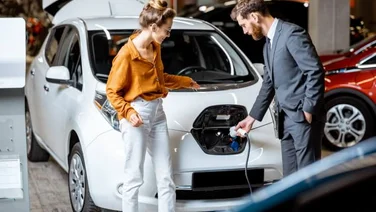We receive a small fee from trusted installers when you request a quote through our site. This helps us keep our content independent, well-researched and up to date – Learn more
The government ended the Plug-In Car Grant as of 14 June 2022.
It’s becoming increasingly common to see electric vehicles (EVs) parked up on UK driveways. But not everyone can afford them. That’s why the government set up the Plug-In Car Grant (PICG), which no longer exists, but has been replaced with grants to help with the cost of installing EV chargepoints.
We’ll take you through what the Plug-in grant offered when it was available, in case a similar grant pops up in the future.
And if you’re sold on an electric vehicle, you can check out our guide on how much an electric car charging point costs to see if you want one for your home.
Get free EV charging point quotes
Answer a few quick questions, and our trusted installers will send you bespoke EV charging point quotes – for free.

What’s on this page?
What is the Plug-In Car Grant?
The Plug-In Car Grant (PICG) is a government scheme that covers part of the upfront cost of electric vehicles.
The grant currently provides up to £1,500 towards eligible electric vehicles – as long as it’s brand new and has a recommended retail price (including VAT and delivery fees) of less than £32,000.
Why was the Plug-In Car Grant set up?
It’s no secret that electric vehicles are pricey. As it stands, the average cost of an electric car in the UK is £44,000 – with prices ranging from roughly £17,000 to £138,000. Although electric vehicles are getting more affordable, this is still unattainable for most people.
Of course, this all depends on the make and model you go with. Luxury cars – such as Tesla, Porsche, Audi, Jaguar, and Mercedes – will set you back an average of £80,000, while non-luxury EVs cost an average of £27,000.
The government originally set up the PICG to help Brits afford the upfront cost of electric vehicles – but does the reduced subsidy of £1,500 go far enough? Not when EVs cost an average of £44,000.
To compare, the French government currently offers €6,000 to anyone that buys a new electric vehicle costing €45,000 or less. As for Germany? People here can get up to €9,000 off electric vehicles and €6,750 off hybrids costing less than €40,000.
Who is eligible for the Plug-In Car Grant?
Unlike most other UK green grants, the Plug-in Car Grant is available for anyone in the UK – not just for low-income households or vulnerable people.
Instead, eligibility comes down to the vehicle itself.

Which cars are eligible for the Plug-In Car Grant?
In previous years, any low-emission vehicle would be eligible for the plug-in grant. However, the rules have recently been tightened to only include fully-electric vehicles, and only those that are being purchased as brand new.
Although it’s called the Plug-In Car Grant, a variety of vehicles are actually eligible for the scheme, including:
- Cars
- Wheelchair accessible vehicles
- Motorcycles
- Mopeds
- Small vans
- Large vans
- Taxis
- Trucks
Each category has its own eligibility criteria – we’ve listed a few examples below.
| Vehicle | Electric range | CO2 emissions | Maximum price |
|---|---|---|---|
| Car | More than 70 miles | 0 g/km | Less than £32,000 |
| Wheelchair accessible vehicles | More than 70 miles | 0 g/km | Less than £35,000 |
| Motorcycle | More than 31 miles | 0 g/km | Less than £10,000 |
| Mopeds | More than 19 miles | 0 g/km | Less than £10,000 |
Want to find out whether your dream car comes under the scheme? Check out the full list of makes and models on the government’s low-emission vehicle eligibility page.
How to apply for the Plug-In Car Grant
If you like the sound of the Plug-In Car Grant, the good news is that you don’t need to do anything to get it – car dealers automatically include the discount in the vehicle’s price.
There isn’t even any paperwork for customers to complete to benefit from the grant.
Once a vehicle has been formally approved for the scheme, the manufacturer and its selected dealerships are given access to an online portal, where they can register claims for eligible vehicles.
When does the Plug-In Car Grant end?
The government initially stated that the grant would come to an end in March 2020. However, after significant pressure from the automotive industry, the scheme was extended until the end of the financial year in 2023.
Although some see this as a win, others aren’t happy with the number of cutbacks that have come with the grant extension.
In 2020, users were able to get up to £2,500 off vehicles with a retail price below £50,000, which has been reduced to a subsidy of £1,500 for vehicles with a retail price below £32,000.
Has the Plug-In Car Grant been a success?
The Plug-In Car Grant’s success is up for debate. On the one hand, the government has encouraged more people to buy low-emission vehicles, but on the other hand, the financial help has been pretty useless for low-income households.
The government states that almost half a million claims have been made since the PICG scheme was launched in 2011 – that’s £1.5 billion worth of grants.
And as more people become conscious of their emissions, EV car sales have skyrocketed. In fact, by the end of 2021, sales of zero-emission new cars were up 89% compared to 2020.
It’s this high uptake in demand that has led ministers to reduce the grant.
Summary
As people continue to move away from fossil fuels, electric vehicle sales are set to increase even further. Although this is good news for the environment, it’ll most likely lead to fewer incentives to encourage more people to buy EVs.
Even in a hypothetical world where the government fully funded the purchase of EVs, it’s no guarantee people would want an electric car, as our 2023 National Home Energy Survey showed. We found that just 55% of Brits would want a free electric car, which is surprising but makes a little more sense when you factor in concerns about EV range and EV charging point infrastructure.
If you’re interested in other grants for EVs, the government has a number of EV charging point grants. Go to our page to find out what they are and who they’re for.








